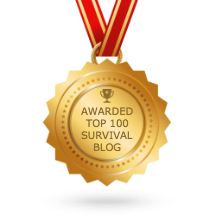What
are the biggest food storage challenges people faces? Do you have
enough space for your emergency foods? Are you storing food in your
kitchen cupboards and pantry, but still need more space? Join me in
taking a look at five easy tips to get your food storage started.
1)
Utilize All Space
One
of the biggest challenges of food storage is having enough space for
your supplies. You want to ask yourself before starting, “Do I have
enough storage space for all the food that I want to store?”
Preparing the space in advance will help you discover other areas for
your storage.
If
you have only a small amount of space, do not panic. Utilize this
space the best way you can, using every inch possible. You do not
have to just store your foods in the kitchen. You can use other
spaces in your home that are available too. Some of these areas
include under the bed, inside plastic storage bins, behind couches
and other furniture.
2)
Utilize Your Time
In
all honesty, everyone is busy! Sometimes you may not even have time
to sit down to dinner at the table. Yet, it takes time to stock up on
a whole year’s supply of food. Here are a couple of things you can
do to use the time that you do have to create your food storage:
Learn
to use your freezer. Make extra portions of your favorite foods. Bag
them and freeze them.
Cook
days ahead of time. Prepare meals in advance so that you can be
prepared for the week. Just store them in your freezer until you're
ready to heat and serve them.
NOTE:
Storing your foods and preparing meals in advance does not have to
take a lot of time, it can actually help you to SAVE time in the long
run.
3)
Set a Budget
You
may be working on a budget, but that's okay. You can still start your
food storage without breaking your family's bank. It's not expensive
start a food storage plan, especially if you add a little at a time.
Use a checklist to ensure that you purchase foods you will actually
eat. Then, add to your storage in baby steps, little by little. This
will help you stick to your monthly budget, while adding to your food
storage over time.
4)
Be Organized
Most
of us reserve a special time each year where we do our major “
spring cleaning.” It's all about cleaning each room, getting rid of
the unnecessary clutter. When it comes to your food storage, you need
to follow this same concept. You have to do a check, every month or
so, to make sure that you get rid of any food items that have
expired. You also want to switch things around to ensure that items
expiring the soonest, are in the front of your storage. This will
ensure that you use the oldest items first, prolonging the shelf life
of your foods. Keeping your storage organized will also help you see,
at-a-glance, products that have been used up and need to be replaced.
5) Remember
Diet Restrictions
If
there are people in your household with dietary restrictions,
provisions need to be made to ensure their safety. These restrictions
can be related to allergies to certain foods, health restricted diets
or disliking for certain types of foods. Be sure to consider these
factors when planning your food storage. When a disaster strikes, you
don't need to have to worry about allergic reactions. You also don't
want to see your family starve because you've filled your storage
with pork products, and no one in your home eats pork.








